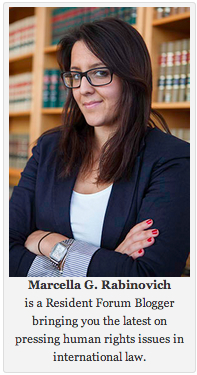At the center of any international conflict is a story; most of the time these stories are ridden with war and resentment. In the current conflict between the Russian Federation and Ukraine, the story began in the mid-1800s. Russia acquired Crimea in the 18th century. The Crimean War of 1853-1856 reshaped Europe and set the stage for WWI. In 1921, Crimea was composed mainly of Muslim Tartars and was a part of the Soviet Union. However, after WWII, Joseph Stalin deported the Tartars as punishment for their alleged collaboration with the Nazi regime. Finally, in 1954, then Soviet Leader Nikita Khrushchev gave the peninsula to his native land, Ukraine (there are rumors that the former Soviet Leader was intoxicated at the time). When the Soviet Bloc fell apart, Crimea followed Ukraine and became a part of the now independent nation.
Though some may believe, from the aforementioned summary of Crimea’s past, that Crimea is clearly a part of Ukraine and that Russia has no claim to the land it freely gifted away; Russians, however, do not see it that way. Ask any Russian about Crimea and they will likely respond, in an aggressive manner, that of course Crimea has always belonged to Russia.
The peninsula, situated in the Black Sea between the Russian Federation and Ukraine, has a population that is 58.5 percent Russian, 24 percent Ukrainian, 10.2 percent Crimean Tartars, 1.4 percent Belarusian, .5 percent Volga Tartars, .4 percent Armenians, and .2 percent Jews. Russia was able to take control of the landmass easily, because Ukraine, at the time, did not have a strong central government to defend itself. The real issues facing the world, in addition to Russia’s hostile take over of what it claims to rightfully control, are the political consequences of Russia’s actions and how this endeavor will affect the human rights of Crimean residents who constitute the minority.
According to a UN Human Rights Report issued on April 15, 2014, government officials both in Crimea and Ukraine must concern themselves with a myriad of issues in ensuring that human rights are enjoyed by all of their citizens. The report states, “a number of measures taken in Crimea are deeply concerning from a human rights perspective.” These concerns include the introduction of Russian citizenship, which presents difficulties for those who desire to maintain their Ukrainian citizenship. The report goes on to state, “the current situation also raises concerns with regard to land and property ownership, wages and pensions, health service, labour rights, education and access to justice.”
As with every conflict, there are those who support Russia’s actions and those who choose to oppose them. Given Russia’s track record, Russia and those officials situated in Crimea should respect the rights of those individuals who choose to take a stand against Russia’s actions. The same goes for eastern Ukraine, where, unlike Crimea, Russians constitute the minority. The report makes the following recommendations for Authorities in Crimea: (1) Actively resolve cases of missing persons and grant access to places of detention; (2) Take all measures needed to protect the rights of persons affected by the changing institutional and legal framework, including citizenship; (3) Investigate all allegations of hate speech and media manipulation; and (4) Ensure the protection of the rights of all minorities and indigenous peoples. The report makes similar recommendations to the Government of Ukraine: (1) Ensure accountability for all human rights violations committed during the unrest; (2) Ensure inclusivity and equal participation in public affairs and political life; (3) Prevent media manipulation by issuing timely and accurate information; (4) Combat intolerance and extremism; and (5) Implement, as a matter of priority, measures to effectively eradicate corruption.
My response? Easier said than done. The two countries, whose resources are either limited or tied up at the moment, are focused on the current issue at hand: Russia’s endeavor to continue into eastern Ukraine. Russia, since February, has been amassing tens of thousands of troops along its border with Ukraine. U.S. Air Force General Philip Breedlove, NATO’s supreme allied commander in Europe, stated, “this is a very large and capable and very ready force.” He went onto state, “we think its ready to go and we think it could accomplish its objectives in between three and five days if directed to make the actions.”
Russia’s Ambassador to the EU, Vladimir Chizhov, stated on Friday, “I think Europe has finally come to understand that there is no and there will be no going back.” Russia’s Ambassador went on to state that Ukraine’s recent decision to ban entry into the country for some categories of Russian citizens demonstrates the country’s “hostility towards the nationals of Russia and, on top of that, a bureaucratic mess.” Fears of Putin acting against Ukraine continue to loom in the minds of the international community; Putin is determined, and apparently authorized by the Russian Parliament, to send troops into Ukraine. It seems the Russian President is eager to take back what many Russian’s believe rightfully belongs to the Russian Federation.
In addition to the work of the UN Human Rights Office of the High Commissioner, the Human Rights Monitoring Mission in Ukraine will continue to issue reports on a regular basis, with the next report scheduled for release in mid-May. Each report will continue to examine the current situation in eastern Ukraine. Although recommendations and reports may help keep the international community informed, they, in effect, do little to help those individuals whose human rights are being stripped away. With military threats and the political agenda of an ambitious president, the rights of the afflicted minorities will take a back seat as future political endeavors continue to consume both the government’s attention and resources.
Posted May 1, 2014
